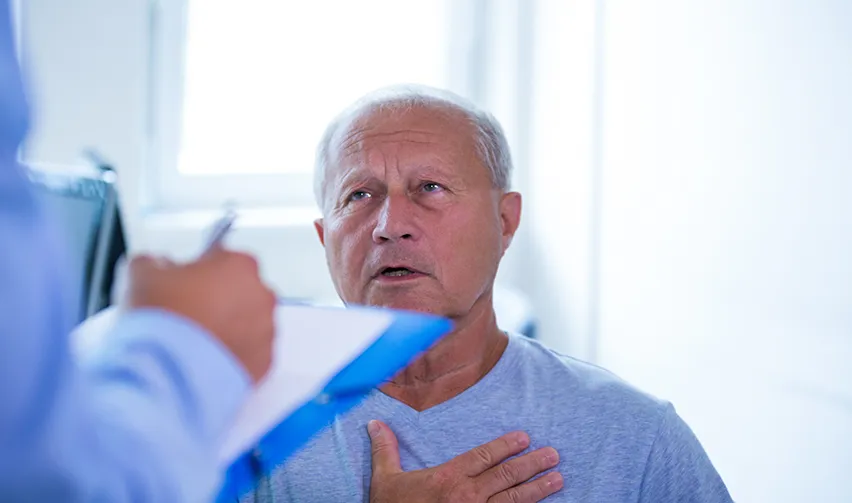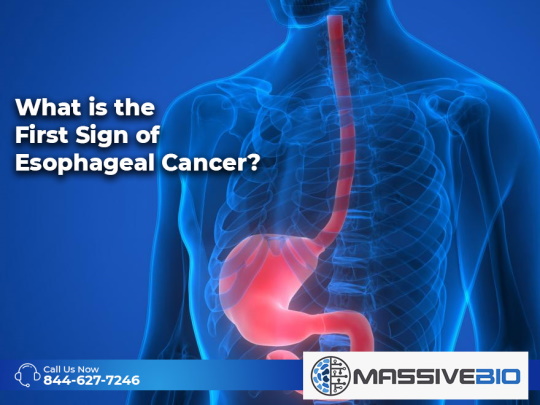What is the first sign of esophageal cancer? In its early stages, esophageal cancer often progresses silently, making it difficult to diagnose promptly. However, the initial symptom that typically raises concern is difficulty swallowing, known as dysphagia.
What is the first sign of esophageal cancer? Early stage esophageal cancer may go unnoticed, therefore, undiagnosed. The most common types of esophageal cancer are squamous cell carcinoma and adenocarcinoma, which develop in the cells lining the wall of the esophagus.
So what is the first sign of esophageal cancer? The first sign of esophageal cancer is difficulty swallowing solid foods, which often develops as the growing cancer narrows the esophagus. After a few weeks, it may even be difficult to swallow soft foods.
Esophageal Cancer Symptom
The most common symptom of esophageal cancer is difficulty swallowing. The sensation of snagging and painful swallowing is among the initial symptoms of esophageal cancer.
For some patients, no symptoms are felt even when the tumor covers more than half of the esophagus. Since the symptoms of esophageal cancer often occur late, in many patients, the tumor is detected in advanced stages. In the elderly, drooling on the pillow at night and pain when swallowing may be the first symptoms of esophageal cancer. Additional symptoms may include:
- Hoarseness
- Cough
- Severe Gastric Reflux
Treatment options for esophageal cancer depend largely on the cancer diagnosis and the specific characteristics of the cancer cells involved. For many patients, an endoscopy is used both for diagnosis and treatment, allowing doctors to examine the esophagus and take biopsies. Early stage esophageal cancer is more treatable and may involve less invasive procedures. Cell carcinoma, which includes squamous cell carcinoma and adenocarcinoma, are the main types of esophagus cancer that develop in the lining of the esophagus.
Esophageal cancer symptoms often include difficulty swallowing and severe gastric reflux. Other esophagus cancer symptoms can include hoarseness, cough, and chest pain. Recognizing what is the first sign of esophageal cancer is crucial for early intervention, as these symptoms often appear in advanced stages. In some elderly patients, symptoms such as drooling on the pillow at night and painful swallowing might be among the earliest indications of the disease.
Identifying and understanding these esophageal cancer symptoms can lead to more timely and effective treatment, improving the prognosis for those affected by this serious condition.

What Causes Esophageal Cancer?
Most of the causes of esophageal cancer are preventable factors. Very rarely are other diseases or genetic factors a cause. The causes of esophageal cancer vary depending on the cell type. Causes of squamous cell esophageal cancer include:
- Consumption of extremely hot beverages
- Burnt-smoked food consumption
- Alcohol and smoking
Esophageal adenocarcinoma cancers are usually caused by reflux. Barrett’s esophagus can also be caused by prolonged reflux, alcohol consumption and smoking. Barrett’s esophagus is a common cause for esophageal cancer.
It is essential to recognize the symptoms of esophageal cancer early to improve treatment outcomes. Esophageal cancer often goes unnoticed until it progresses to more advanced stages. For example, Stage 1 esophageal cancer symptoms might be subtle and include difficulty swallowing and mild discomfort. Understanding what is the first sign of esophageal cancer can lead to early detection and treatment. There are various types of esophageal cancer, with squamous cell carcinoma and adenocarcinoma being the most common.
As the cancer of the esophagus progresses to stage 4, symptoms become more severe and widespread, often including significant pain, weight loss, and difficulty swallowing even liquids. Early detection and awareness of esophageal cancer symptoms are crucial for effective management and treatment.
Esophageal Cancer Diagnosis
The diagnosis of esophageal cancer is made with an endoscopic procedure. During an endoscopy, the doctor will pass a flexible tube equipped with a video lens down the throat into the esophagus. Using an endoscope, the doctor examines the esophagus by looking for areas of cancer or irritation.
A doctor may also use a special scope that goes down the throat into the esophagus to take a sample of suspicious tissue. The tissue sample is sent to the lab to find cancer cells. After confirming esophageal cancer, additional tests are recommended to determine if the cancer has spread to lymph nodes and other parts of the body.
When considering is difficulty swallowing a sign of cancer, it is essential to understand that this is often what is the first sign of esophageal cancer. Other esophageal cancer symptoms female patients might experience include back pain, weight loss, and chronic heartburn, also known as GERD. The food pipe, or oesophageal is closely examined during the diagnostic process to identify any abnormalities.
To diagnose esophageal cancer accurately, a comprehensive approach is needed. Besides endoscopy, imaging tests such as CT scans and PET scans help determine the extent of the cancer of the esophagus. Recognizing early esophageal cancer symptoms can significantly improve treatment outcomes, making awareness and timely medical consultation crucial.










4 Comments
I have symptoms and my doctor will just not see me.
I keep getting told to lose weight.
I have been on medication for reflux for nearly two years and they are not helping and nobody will see me.
UK.
Thank you for reaching out to Massive Bio, Margaret. We are sorry that you have been experiencing these symptoms and having such a difficult time. We recommend seeking a second opinion to discuss these symptoms. We would be happy to support you after you receive a diagnosis.
I have suffered with reflux for years to the point now its unbearable with pains in my chest which I thought was a gallbladder attack however I have had an endoscopy done and a 15mm polypoid looking mass/tumour has been found 6 biopsies have been taken and I have been told 4-6 weeks for results. my anxiety is through the roof at the minute keep trying to stay positive, I’m only 39
Thanks for your message. We would be happy to help. You can learn more about available cancer treatment options and clinical trials here: https://hubs.ly/Q01yygDr0.
You can also contact one of our Patient Relations Coordinators via phone or email at 844-627-7246 & [email protected].